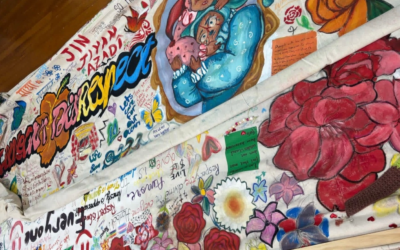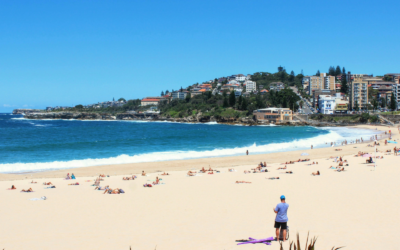On May 26, 2025, Teach Us Consent – a movement founded by activist Chanel Contos, advocates to dismantle rape culture, launched the Promoting Consent Initiative. The initiative aims to provide young people with online content communicating the importance of healthy sexual relationships free from abuse.
The program’s resources are now available online through Teach Us Consent’s website. They purposefully come in various mediums such as podcasts, TikToks, Instagram reels and articles that are catered to the younger audience.
Chanel Contos was just 22 years old when she founded the movement, and recently spoke to W’SUP News about the Promoting Consent Initiative.
Contos felt overwhelmed when starting the Teach Us Consent campaign after receiving online testimonies from people who’d experienced sexual assault. Contos was moved by the impact of her work:
‘That was the reality, but to see it in such raw form, especially at the very beginning so many of the testimonies were coming from friends or people I know’.
Contos said although it was an emotional time, it was motivating, validating and empowering:
‘It felt we were standing up for ourselves. And it felt like we were creating our own avenue of accountability’.
Anonymous Reporting of Sexual Assault
In 2021, as reported by Maddy King for ABC Hack, the New South Wales Police Force launched Operation Vest in consult with Contos. The operation allows people to anonymously report sexual assault or harassment.
In NSW, 2021, a 54% month-on-month increase in reporting was seen, however communities experience a growing distrust of police, as reported by Ariel Bogle and Christopher Knaus for The Guardian in 2024. This could mean the number of people reporting their experiences may be an understatement.
Contos commented on the importance of acknowledging the mistrust in the police system:
‘If they’ve seen the police constantly fail them or constantly discriminate against their community, they may be hesitant to use this avenue, even though it is anonymous’.
Contos explains how oppressive systems can exacerbate rape culture:
‘I think that acknowledging the links between rape culture and those things (white supremacy and colonisation) is so important. Especially in Australia – a colonised state. The way we talk about gender expectations and what it means to be a girl. And just general disrespect as well and disregard for women, that is so commonplace in our culture. That wasn’t the case before invasion’.
Consent at University and Between Students
Contos listed several ways universities can promote awareness and consent:
‘I think that signage around universities and public education goes a really long way’. Contos stated that it was crucial for universities to take accountability and reporting seriously. She explained, universities can take sexual assault matters into their own hands and apply measures to limit incidents. Contos suggested banning perpetrators from venues, expulsion, or banning them from on-campus accommodation.
For students whose first language is not English, the resources from the Teach Us Consent campaign are translated in Arabic, simple Chinese, Hindi, Torres Strait, Kriol and Vietnamese. She mentioned how Teach Us Consent has worked with a First Nations run agency to provide Indigenous communities with key resources on consent specific to them. Contos sees this as an opportunity for young people to engage with broad communities about healthy sexual relations.
When asked how students can support friends who have experienced sexual violence, Contos affirms there’s never a right way to address such a difficult situation. Contos says offering the person a safe space is important:
‘Listen. Believe. Not question. And ask the person who is disclosing this thing to you, what they want from you’.
She advocates for people to define their own narrative. However, Contos also advises immediate support for victims in actively dangerous situations and encourages support networks to consider individuals’ safety.
Feedback about The Promoting Consent Initiative
Contos said many folks have responded positively to the new Initiative:
‘We have gotten really great feedback from experts and young people’.
If you’re in immediate danger, please call 000.
Students who need immediate support are encouraged to call 1800RESPECT (1800 737 732).
See more of Western’s sexual health resources here.



